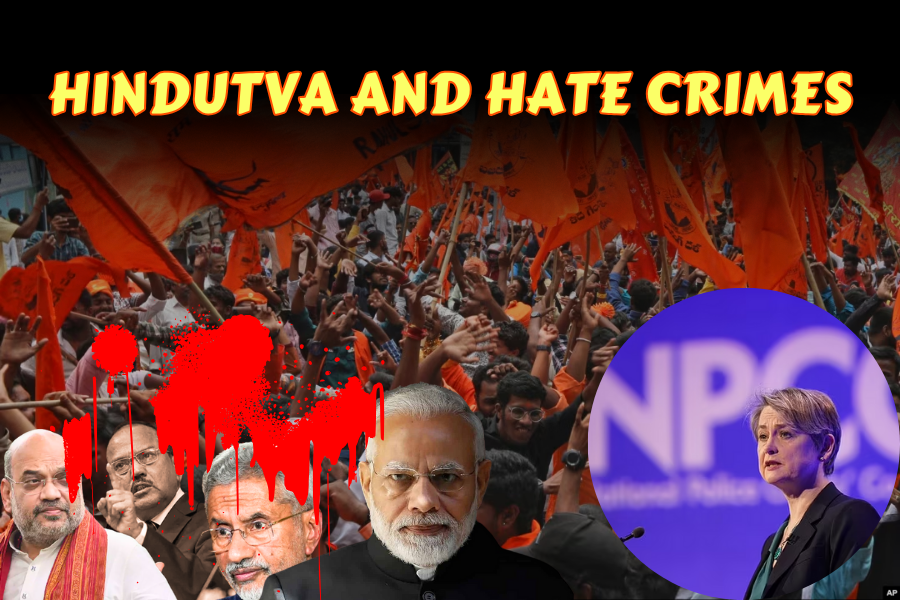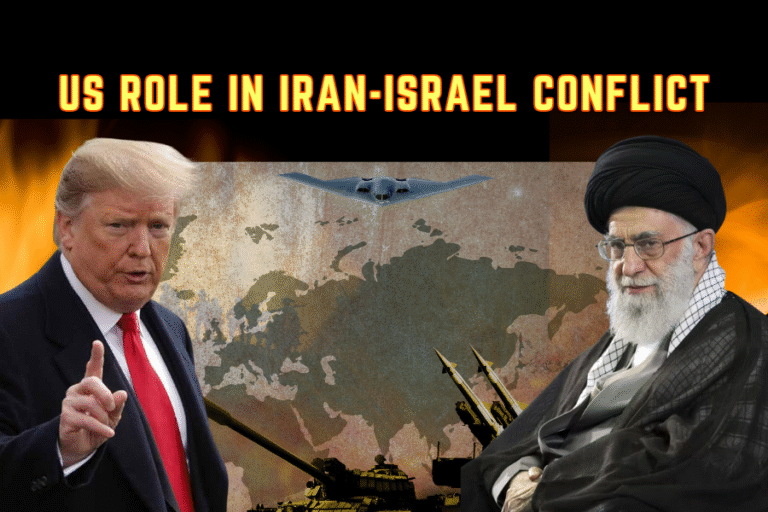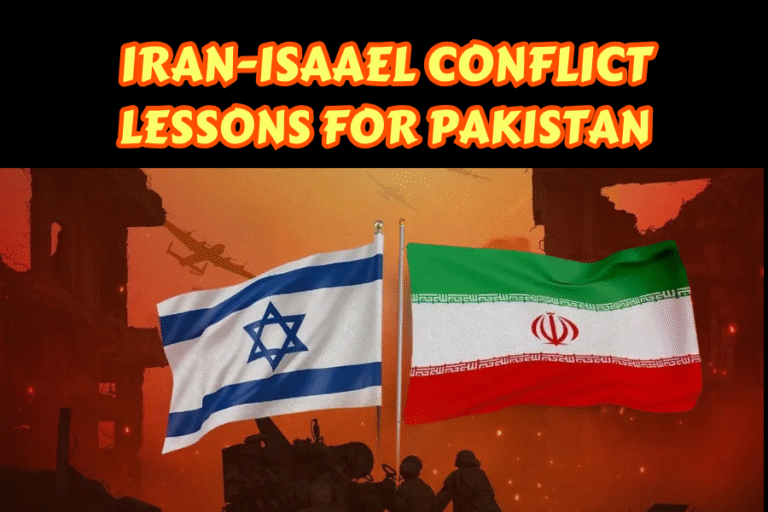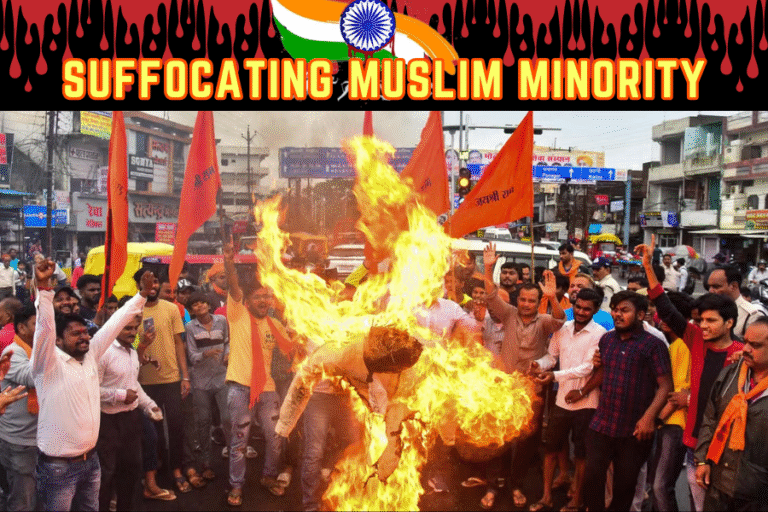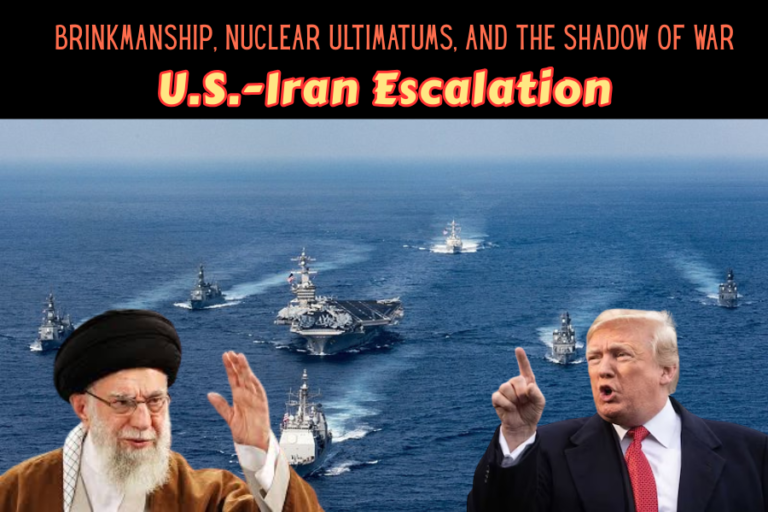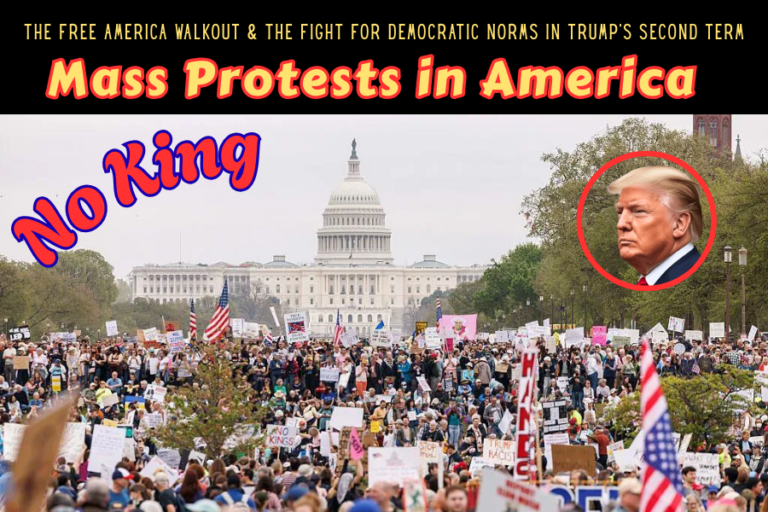(By Khalid Masood)
In the summer of 2022, Leicester, a multicultural hub in the English Midlands, erupted in violence between Hindu and Muslim communities, exposing a simmering fault line fueled by disinformation and extremist ideologies. A leaked National Police Chiefs’ Council (NPCC) report, compiled by the National Community Tension Team in 2025, identified Hindutva—a Hindu nationalist ideology distinct from Hinduism—as an “extremism of concern” in these riots, marking its first mention in a UK government document. Aligned with India’s ruling Bharatiya Janata Party (BJP) and its paramilitary affiliate, the Rashtriya Swayamsevak Sangh (RSS), Hindutva advocates for Hindu hegemony in India, a vision increasingly exported to the diaspora. The report warns of Hindutva’s role in fostering anti-Muslim hate crimes, forging alliances with British and European far-right groups, interfering in UK elections, and inflaming tensions through cultural symbols like Bollywood films and chants. Yet, moderate Hindus have condemned these trends, emphasizing Hindutva’s divergence from Hinduism’s pluralistic ethos. This article explores Hindutva’s impact on hate crimes against Muslims in the UK and globally, its geopolitical roots, and the urgent need for diplomatic responses to safeguard community cohesion.
Hindutva: Ideology and Global Reach
Hindutva, meaning “Hindu-ness,” is a political ideology born in colonial India through thinkers like V.D. Savarkar, who envisioned a Hindu-majoritarian state. Unlike Hinduism’s diverse spiritual traditions, Hindutva seeks a monolithic “Hindu Rashtra,” marginalizing minorities, particularly Muslims, as threats to national purity. Championed by the RSS since 1925 and operationalized by the BJP under Prime Minister Narendra Modi since 2014, Hindutva has reshaped India’s political landscape. Policies like the Citizenship Amendment Act (CAA), which excludes Muslims from citizenship pathways, and the revocation of Jammu and Kashmir’s autonomy in 2019 reflect this exclusionary ethos, often accompanied by vigilante violence against Muslims, as seen in the 2002 Gujarat riots, where over 1,000, mostly Muslims, were killed under Modi’s watch as state Chief Minister.
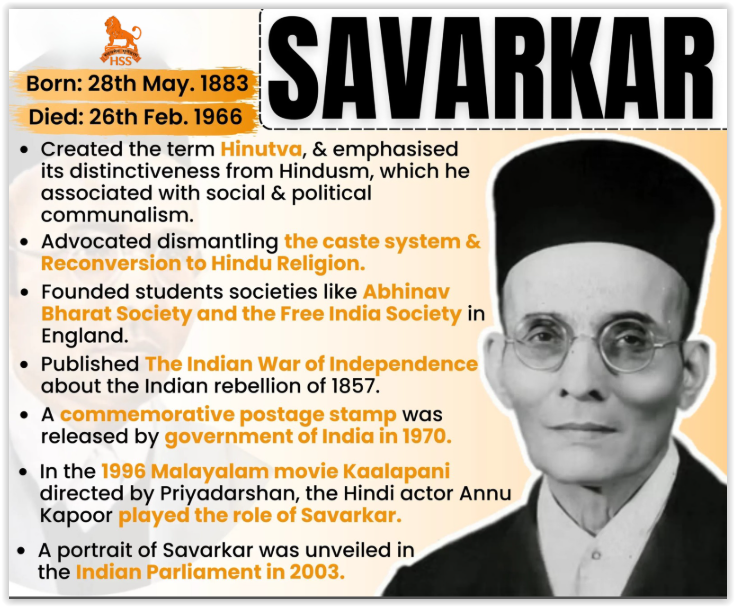
Globally, Hindutva has gained traction among diaspora communities, facilitated by groups like the Vishwa Hindu Parishad (VHP) and the Overseas Friends of the BJP (OFBJP). In the UK, home to over one million Hindus, Hindutva’s influence surfaced violently in Leicester’s 2022 riots, triggered by an India-Pakistan cricket match but amplified by disinformation from India-based social media accounts. The NPCC report notes that Hindutva’s anti-Muslim rhetoric, often parroting far-right tropes like “grooming gangs,” has fostered tensions not only with Muslims but also with Sikhs, as seen in protests against Bollywood films like Emergency in January 2025.web:5,8,18,21
Leicester Riots: A Flashpoint of Tensions
The Leicester riots of September 2022, involving hundreds of Hindu and Muslim youths, marked a rare outbreak of communal violence in the UK. Hindu groups chanted “Jai Shri Ram” (Hail Lord Ram), a sacred phrase co-opted by Hindutva as a nationalist war cry, while Muslim counter-demonstrators responded with “Allahu Akbar.” The NPCC report attributes the unrest to disinformation, including false claims of Hindu temple vandalism and Muslim aggression, much of it traced to Indian propaganda sites like Opindia. Over 200,000 tweets, half from India, fueled the chaos, highlighting Hindutva’s transnational reach. Hadiya Masieh of the counter-extremism group Groundswell emphasized that both Hindu and Muslim extremists drove the violence, not one side alone, a view echoed by Leicester’s mayor, Sir Peter Soulsby, who linked the unrest to “ideologies from the Indian subcontinent.”
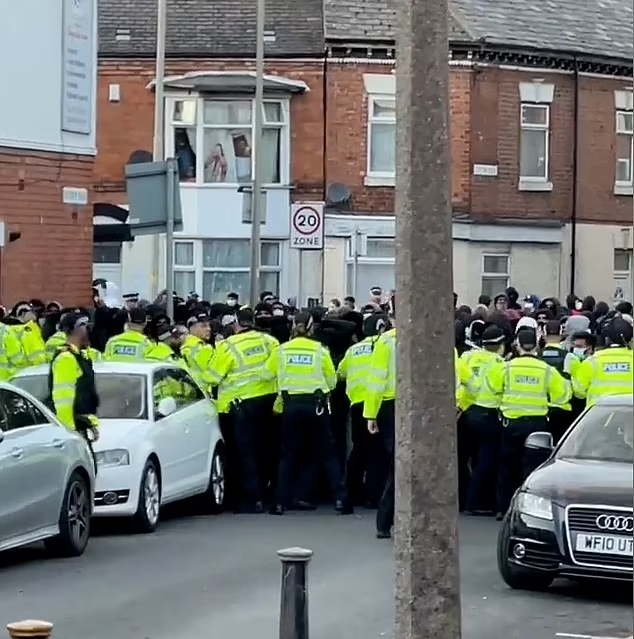
Alliances with the Far Right
A disturbing trend highlighted by the NPCC is Hindutva’s convergence with British and European far-right groups, united by anti-Muslim hatred. Far-right activist Tommy Robinson (Stephen Yaxley-Lennon) has met with Hindu groups to promote anti-Muslim campaigns, his presence welcomed by some British Hindus and Indian media. In 2016, the National Council of Hindu Temples invited Robinson to speak, signaling strategic alignment. Norwegian terrorist Anders Breivik, who killed 77 in 2011, cited Hindutva, the BJP, and RSS in his manifesto, praising their anti-Muslim stance, a chilling precedent for this ideological overlap. Scholars like Christophe Jaffrelot note that since the 1930s, Hindu nationalists have admired European nationalist movements, sharing fears of Muslim “conquest,” akin to the “Great Replacement” conspiracy.
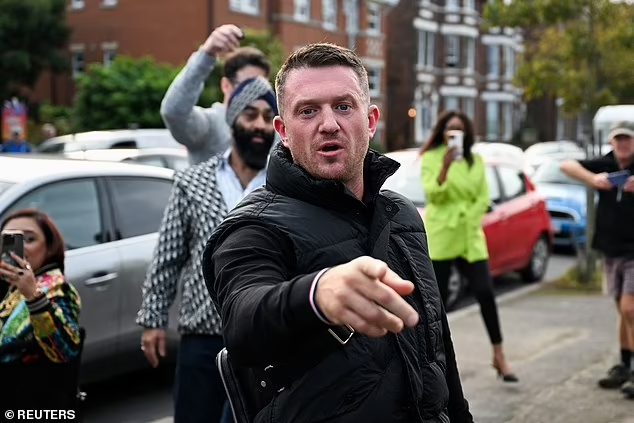
Far-Right activist, Tommy Robinson of UK
In the UK, this alliance manifests in shared Islamophobic narratives, with Hindutva groups amplifying far-right claims about Muslim “grooming gangs” on platforms like Rebel Media. During the Leicester riots, Robinson posted videos urging supporters to “stand with Hindus,” falsely claiming Muslims carried guns, a claim debunked by police. Such collaborations, per the NPCC, risk escalating religious brawls, as seen in Smethwick in 2022, where a Muslim mob attacked a temple, possibly in retaliation to Hindutva provocations. Hindus for Human Rights UK condemned this alignment, noting Robinson’s 2024 appearance on the Hindutva-linked PGurus channel as a “dangerous convergence.”web:8,13,19,22
Electoral Interference and Political Influence
The NPCC report raises concerns about Hindutva’s impact on British democracy, alleging interference in the 2019 general election. The OFBJP-UK campaigned for the Conservative Party in 48 marginal seats, urging Hindu voters via WhatsApp to reject Labour, perceived as anti-Hindu under Jeremy Corbyn due to his criticism of India’s Kashmir policies. Kuldeep Shekhawat of OFBJP-UK defended this as legitimate diaspora lobbying, akin to Muslim or Jewish campaigns, asking, “How can that be interference?” However, the NPCC views such targeted campaigns, backed by Modi’s supporters, as undermining electoral integrity.
This reflects a historical BJP-Conservative nexus. In 2016, Tory candidate Zac Goldsmith used anti-Muslim literature to target Labour’s Sadiq Khan in the London mayoral race, appealing to Hindu and Sikh voters. Former Home Secretary Priti Patel, who called Modi “our dear friend,” has described the Tories and BJP as “sister parties.” Yet, Hindu groups like INSIGHT UK argue these claims lack evidence, accusing the NPCC report of anti-Hindu bias.

Cultural Flashpoints: Chants and Cinema
Cultural symbols have become lightning rods for Hindutva-driven tensions. The chant “Jai Shri Ram,” a traditional Hindu greeting, has been repurposed by Hindutva activists to assert dominance, creating friction with Muslims and Sikhs, akin to the hijacking of “Allahu Akbar” by Islamic extremists. During Leicester’s riots, its use in Hindu marches heightened sectarian divides. Similarly, Bollywood films like Emergency, criticized for negative Sikh portrayals, sparked UK protests in January 2025, with Sikh groups decrying Hindutva propaganda. The NPCC notes such films, often backed by BJP-aligned producers, amplify communal tensions abroad, a trend also seen in Canada, where anti-Sikh vandalism followed Hindutva rallies.
Moderate Hindus, per Groundswell’s Hadiya Masieh, reject these cultural distortions, insisting Hindutva misrepresents Hinduism’s inclusivity. However, INSIGHT UK disputes claims about Emergency, arguing Sikh protests were driven by pro-Khalistan extremists, not mainstream Sikhs, highlighting the risk of conflating legitimate grievances with extremism.
Global Implications and Diplomatic Challenges
Hindutva’s global spread poses diplomatic challenges. In Canada, Hindu nationalists have harassed Sikh academics and displayed anti-Muslim symbols at rallies, while in the U.S., BJP supporters paraded bulldozers in 2022, celebrating Muslim home demolitions in India. Australia’s India Institute faced resignations over Indian High Commission censorship, reflecting Hindutva’s transnational influence. These trends, per the NPCC, risk exporting India’s communal tensions, straining multicultural societies.
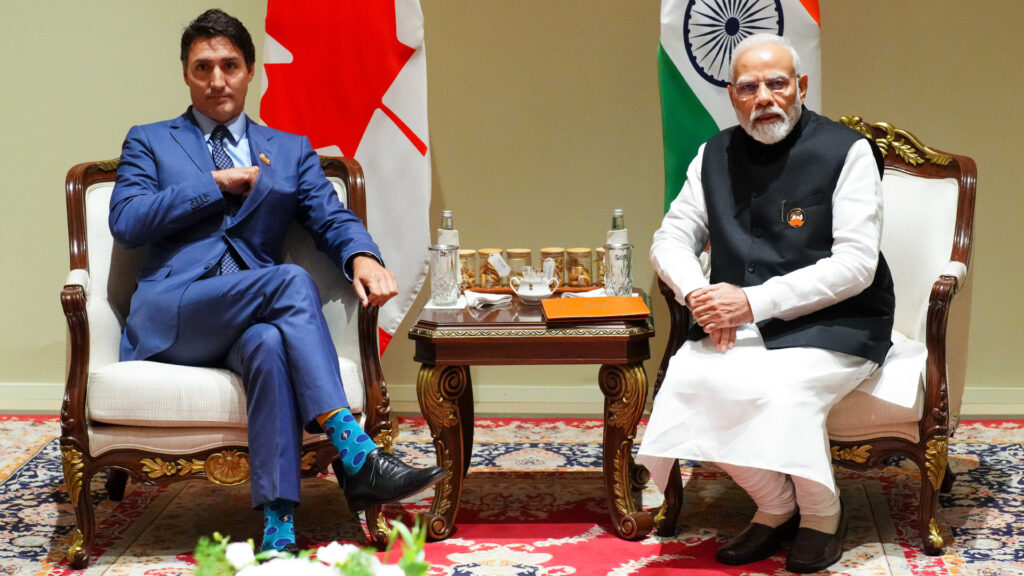
The UK’s response requires nuance. The NPCC report’s focus on Hindutva, while groundbreaking, has sparked backlash from Hindu groups, who fear stigmatization. Government statistics show Hindus are underrepresented in crime, with only 166 religious hate crimes against them in 2020–21, compared to 2,703 against Muslims, suggesting a disproportionate focus on Hindu extremism compared to Islamist threats. Yet, ignoring Hindutva’s role risks emboldening far-right alliances, as seen in Robinson’s outreach. Diplomacy must balance community engagement with robust counter-extremism measures, ensuring moderate Hindus are not alienated.
India’s role complicates matters. Modi’s government, lauded by Tories like Boris Johnson, has been linked to extraterritorial actions, including the alleged assassination of a Sikh activist in Canada. The UK must navigate trade ties with India while addressing Hindutva’s diaspora impact, a delicate task given BJP’s electoral clout.
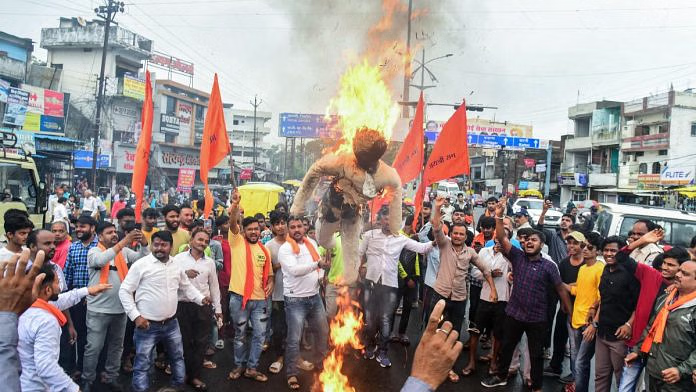
Conclusion
The NPCC’s 2025 report unveils a troubling nexus between Hindutva and hate crimes against Muslims in the UK, amplified by far-right alliances, electoral meddling, and cultural provocations. Leicester’s 2022 riots, fueled by disinformation and ideological imports, underscore Hindutva’s global reach, rooted in Modi’s BJP and the RSS. Yet, moderate Hindus’ rejection of this extremism offers hope for dialogue. The UK must tread carefully, fostering community cohesion while countering extremist ideologies, lest Hindutva’s divisive vision fractures its multicultural fabric. Globally, nations must confront this transnational challenge, prioritizing pluralism over polarization to safeguard democratic values.

